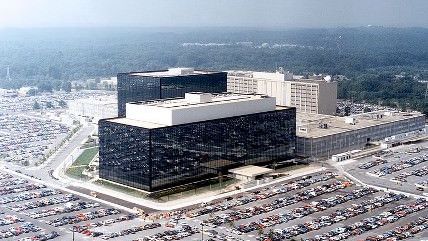Government's Eternal Excuses For Abuses of Power
Snowden should have known the Washington rule: Abuse power, and you'll be protected by those with power. Expose abuse, and you're on your own.

If you're part of the U.S. national security apparatus and you torture someone to death during an interrogation, you can rest easy. Two administrations have furnished get-out-of-jail-free cards absolving you of responsibility for your crime.
But if you're part of that same U.S. national security apparatus and divulge to the American people information about government activities that are unauthorized, illegal, and quite possibly unconstitutional, you should expect no such mercy.
Commit crimes on behalf of the government? OK. Reveal secret abuses committed by the government? You must be joking. No one has been prosecuted for the dozens of detainees tortured to death by American military and intelligence personnel — but Edward Snowden faces certain indictment if he dares to return to American soil.
What did Snowden do? Through leaks to journalists, he let us know about surveillance programs that infringe on personal privacy, often ignore the legal requirements established by the Foreign Intelligence Surveillance Court and, according to a federal court ruling Monday, most likely violate the Constitution.
Wrote Judge Richard Leon, a George W. Bush appointee, "No court has ever recognized a special need sufficient to justify continuous, daily searches of virtually every American citizen without any particularized suspicion." The mass collection and examination of telephone records "almost certainly does violate a reasonable expectation of privacy."
After stories appeared based on Snowden's leaks of classified information, President Barack Obama said he welcomed the debate on the National Security Agency's surveillance programs. Director of National Intelligence James Clapper agreed "that some of the conversations this has generated, some of the debate, actually needed to happen."
But the debate has taken place only because Snowden exposed the program, at serious risk to his own freedom and well-being. The court decision likely would not have occurred without him, since the lawsuit came in response to his disclosures.
A few days ago, the NSA official assigned to evaluate the damage from the leak said he would consider granting Snowden amnesty in exchange for turning over all the documents he has. But the president has no use for that option.
"Mr. Snowden has been accused of leaking classified information, and he faces felony charges here in the United States," huffed press secretary Jay Carney. "He should be returned to the United States as soon as possible, where he will be accorded full due process in our system."
Having taken the unforgivable step of letting the American people know what their government was secretly doing to them, Snowden can't expect the forgiveness granted minor offenders whose intentions were more wholesome.
Torturers are excused for committing acts that constitute crimes under U.S. law and international treaties signed by the U.S. Neither high-level officials who authorized brutal treatment — including, by his own admission, President George W. Bush — nor low-level personnel who carried it out were brought to justice.
Lawrence Wilkerson, who was chief of staff to Bush Secretary of State Colin Powell, told Congress in 2008 that 108 detainees had died in U.S. custody, with at least 25 classified as homicides. But no one was ever prosecuted. Obama renounced any action against Bush administration officials, contending that "nothing will be gained by spending our time and energy laying blame for the past."
The leniency extended all the way down. Among the last cases closed by the Justice Department involved the death of an Iraqi detainee after his interrogation in CIA custody. According to a U.S. military autopsy, he had five broken ribs, and his death was a homicide caused by "blunt force trauma to the torso complicated by compromised respiration."
So a lot of Americans who participated in acts that caused the deaths of inmates have no fear of prison. But Snowden faces the prospect of spending decades behind bars for his violation of the law.
What was so horrific about his leaks? Leon noted that "the government does not cite a single instance in which analysis of the NSA's bulk metadata collection actually stopped an imminent attack, or otherwise aided the government in achieving any objective that was time-sensitive in nature." Nor have I seen anyone in the executive branch or Congress offer specific evidence to support the claim that the leaks helped our enemies.
But so what? Snowden should have known the Washington rule: Abuse power, and you'll be protected by those with power. Expose abuse, and you're on your own.


Show Comments (10)